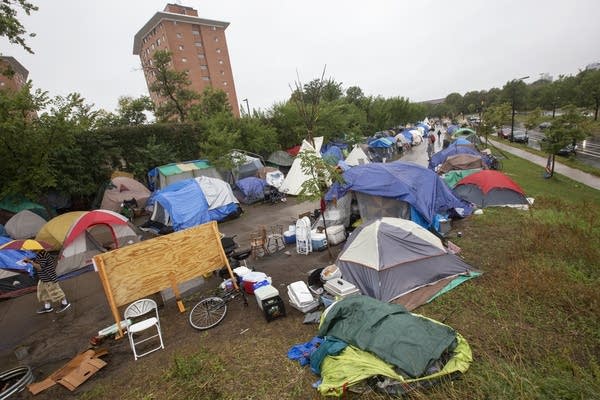Red Lake Nation, Frey offer surprise option for homeless camp in Minneapolis

One side of the homeless encampment near the Little Earth neighborhood spans the sidewalk on Thursday, Sept. 20 in south Minneapolis.
Ellen Schmidt | MPR News
Go Deeper.
Create an account or log in to save stories.
Like this?
Thanks for liking this story! We have added it to a list of your favorite stories.


